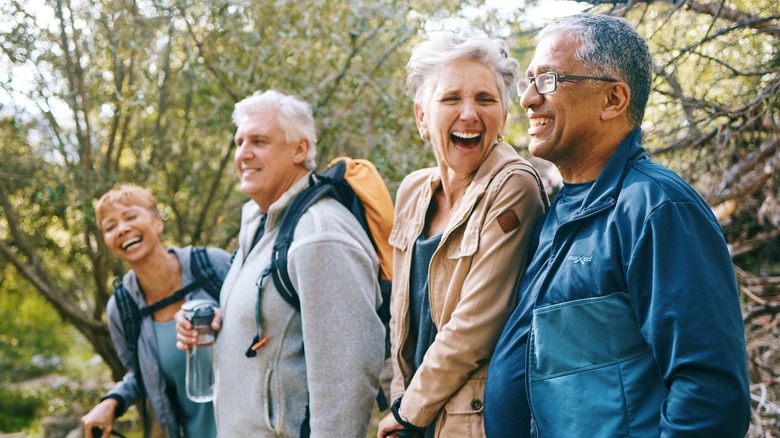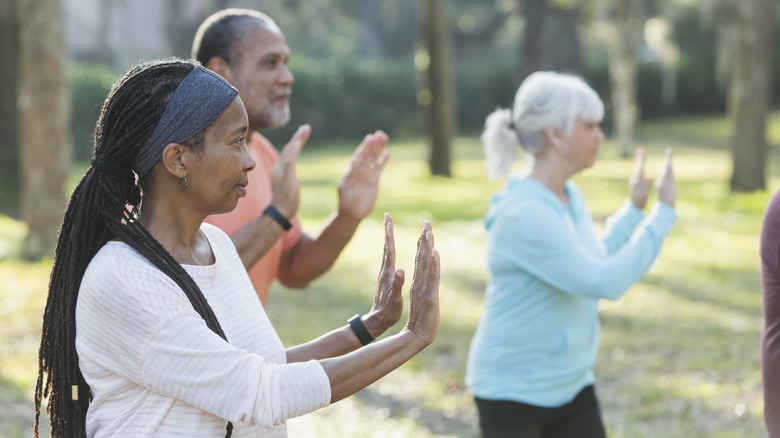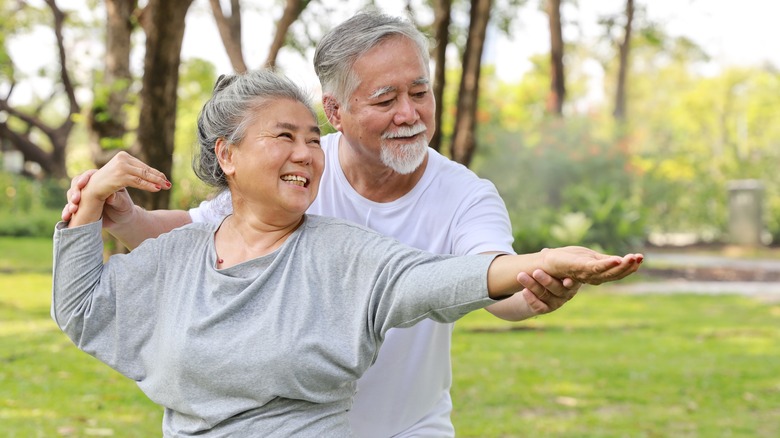The Unique Exercise That Can Help Your Brain Age Backwards
Actresses and social media influencers will showcase their anti-aging skincare routine. Fitness influencers will sometimes highlight crazy mobility routines to stave off age-related flexibility issues. Yes, your skin will wrinkle, your body will become less flexible, and even your voice will change as you age.
Your brain also changes as you age, and some parts actually shrink. Neurons don't quite fire as well as they used to, and blood might not flow in the brain as well as it did when you were younger. This might result in forgetting words and names more easily or needing a little more time to learn a new skill.
While that might get you to play more brain games or play the New York Times mini crossword every day, the National Institute on Aging says your physical health can influence how resilient your brain can be as you age. Being physically active is linked to slower rates of cognitive decline. You might not even need to take up running. Instead, the mind-body exercise of tai chi could improve your cognition as you age.
Tai chi with a cognitive twist
A 2023 study in the Annals of Internal Medicine sought to determine if tai chi or a cognitively enhanced tai chi would help people who have memory decline. They split 318 older adults into three groups after measuring their cognition using the Montreal Cognitive Assessment (MoCA). One group practiced cognitively enhanced tai chi, which had people spell words backward as they flowed through some of the tai chi movements. The second practiced regular tai chi, and the third stretched. Each group performed these guided exercises for an hour twice a week for six months.
The regular tai chi group improved their MoCA scores by 1.5 points, which study author Elizabeth Eckstrom equates to shaving off three years of cognitive decline (via NPR). Eckstrom says that you typically lose half a point each year if you already have mild cognitive decline. The group that did the cognitively enhanced tai chi improved their MoCA scores by 3 points, which means saving six years of cognitive decline.
How tai chi affects the brain
Other things can happen to your body when you do tai chi. Tai chi has been found to slow the progression of dementia and have other health benefits, according to a 2023 article in Systematic Reviews. While some studies have found that tai chi can improve neurocognitive outcomes such as global cognitive function, memory, and perceptual-motor function, other studies have found mixed results. Some studies have found tai chi to reduce pain, improve balance, and maintain a protein that preserves the brain's neurons.
Studies on healthy practitioners of tai chi have investigated the mechanisms of tai chi on brain health. Brain imaging studies have found that tai chi activates parts of the brain associated with cognitive flexibility, decision-making, visual processing, memory, and motor control. Tai chi also helps improve connectivity between different areas of the brain such as memory, decision-making, and movement. This results in better cognitive function. Tai chi can also produce meaningful structural changes in the brain, increasing the volume of gray matter in areas of the brain involved with visual processing, memory retrieval, self-awareness, and language comprehension.



